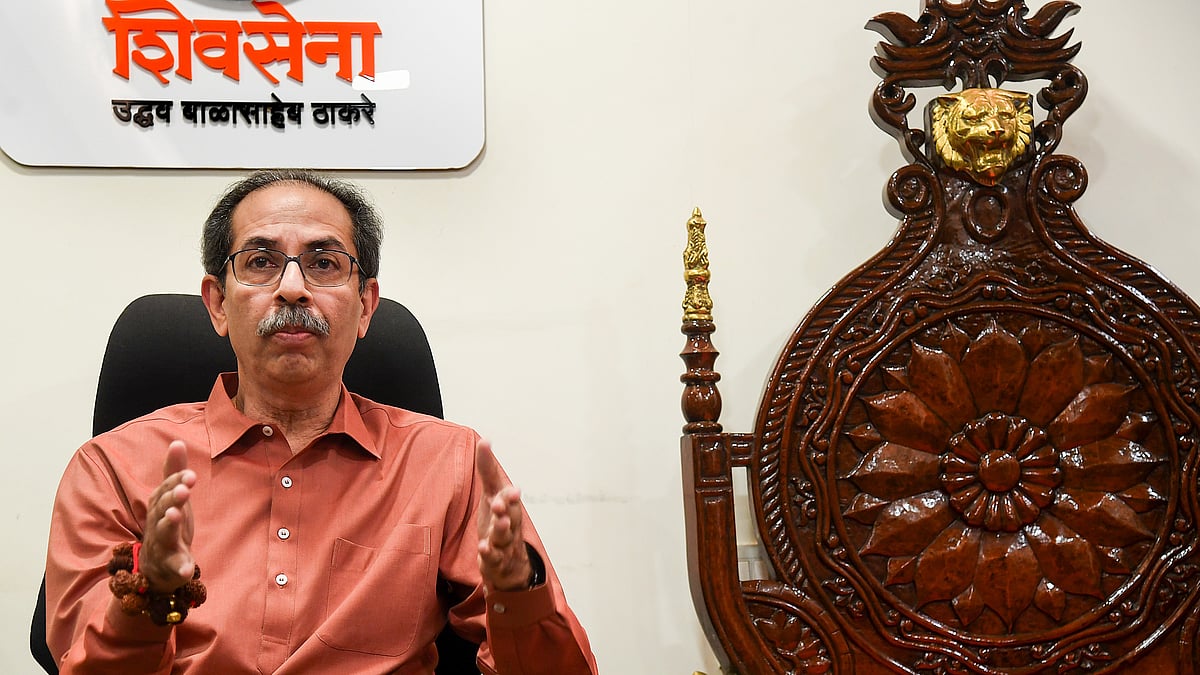Nation
Uddhav slams Centre over Sonam Wangchuk's arrest
The Shiv Sena (UBT) president also called on Indian citizens who consider themselves patriotic to boycott Sunday’s Asia Cup final between India and Pakistan

Shiv Sena (UBT) chief Uddhav Thackeray on Saturday condemned the arrest of renowned climate activist Sonam Wangchuk under the National Security Act (NSA), calling it a betrayal of patriotism. Thackeray also took aim at the central government for allowing India to continue sporting ties with Pakistan, even as the neighbouring country is accused of backing terrorism.
Addressing a press conference in Mumbai, the former Maharashtra chief minister said that Wangchuk, who has worked closely with the Indian Army in developing sustainable technologies, was being treated as an enemy of the state, while India continues to play cricket with a country accused of fuelling cross-border terrorism.
“It is unfortunate. Sonam Wangchuk developed solar tent technology for the Indian Army in difficult terrain. The one who is working for our forces has been dubbed anti-national and arrested under the NSA and you are playing cricket with Pakistan which spreads terror in India. What kind of patriotism is this?” Thackeray said.
Wangchuk, a prominent voice in Ladakh’s ongoing demand for statehood and constitutional safeguards, was arrested on Friday — just two days after violent clashes erupted during protests in Leh and Kargil. The unrest, led by the Leh Apex Body (LAB) and the Kargil Democratic Alliance (KDA), left four people dead and over 90 injured. Protesters were demanding protection under the Sixth Schedule of the Constitution, which ensures autonomy and cultural rights for tribal regions.
Wangchuk has long been a key figure in environmental innovation, especially in the Himalayan region. He gained international recognition for designing eco-friendly solutions tailored for extreme climates, including solar-powered tents used by the Indian military in high-altitude areas like Siachen. His arrest under the NSA — a law typically invoked for threats to national security — has drawn widespread criticism from activists and opposition leaders.
Published: undefined
Adding to his criticism, Thackeray called on Indian citizens who consider themselves patriotic to boycott Sunday’s Asia Cup final between India and Pakistan. He further urged companies to pull their advertising during the high-profile cricket match, which is expected to attract millions of viewers across the subcontinent.
The remarks come amid heightened political tension over India's continued engagement with Pakistan on the cricket field.
Many opposition figures have questioned the logic of maintaining sporting ties with a nation accused of sponsoring terrorism, particularly after recent escalations in violence.
On 14 September, India and Pakistan faced off in the first Asia Cup encounter between the two nations since India carried out 'Operation Sindoor' in May. That military operation reportedly targeted terror camps in Pakistan-administered territory in response to the 22 April Pahalgam terror attack in Jammu and Kashmir, which left 26 people dead. The attack, believed to have been orchestrated by Pakistan-based terror outfits, reignited debates over India’s engagement with its neighbour.
Since the bifurcation of Jammu and Kashmir in August 2019 and the creation of Ladakh as a separate Union Territory, there has been sustained local agitation in the region.
Residents of both Leh and Kargil have accused the Centre of sidelining their political and cultural rights, and are demanding statehood, job and land protections, and inclusion under the Sixth Schedule. Wangchuk has emerged as a leading face of this movement.
Thackeray's comments reflect a growing discontent among opposition parties and civil society groups, who argue that the government’s actions reflect selective patriotism — targeting peaceful dissenters at home while maintaining superficial diplomacy through sport.
As the Asia Cup final draws millions of viewers on Sunday, questions remain about the government's priorities: whether it chooses to support democratic dissent and local autonomy or continues to silence critics while promoting national pride through cricket diplomacy.
Published: undefined
Follow us on: Facebook, Twitter, Google News, Instagram
Join our official telegram channel (@nationalherald) and stay updated with the latest headlines
Published: undefined